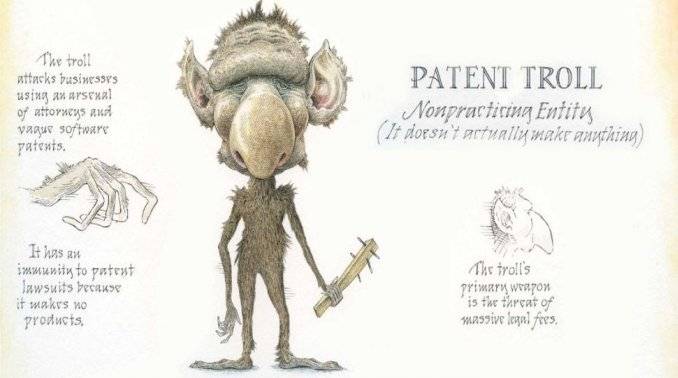This post was first published on February 11th, 2014.
We are familiar with Patent Trolling strategies adopted by companies as a means to financial gain and to gain market advantage over competitors. Normally, in such cases, one company would use its portfolio of active patents to sue other companies which seem to infringe on their patent rights. This may trigger a litigation procedure in courts or get settled outside the court, at the expense of a huge amount of money. In an interesting case, things went from bad to worse when a company decided to sue the end users of certain products, instead of suing the manufacturers of these products.
The story goes like this –
Innovatio IP Ventures, in the beginning of the year 2011, sued coffee shops, hotels, transportation companies, restaurants and other commercial users of wireless internet technology in the US alleging that these wireless network users, by providing wireless internet access to their customers, were infringing on various claims of 23 patents owned by Innovatio. Innovatio demanded as much as USD 2500 per location from the infringing parties. The issue with lawsuits that target end-users, is that since most of the commercial users lack resources to defend against such expensive lawsuits, settlements are driven by the cost of litigation and not by the value of patents. In this case, to make matters worse, many large chip makers retained licenses to Innovatio’s patents, which means, commercial users of associated technology were bound to the terms in the licensing agreements and Innovatio’s failure to inform this to its target parties, is considered misleading conduct.
In October 2013, a district judge of the US observed that previous owners of all of Innovatio’s patents had agreed based on FRAND (fair, reasonable, and non-discriminatory) terms with the IEEE, that they would license any patent that is essential to the operation of the 802.11 wireless standards. FRAND terms are licensing obligations required for members who participate in a standard-setting process. The judge entitled Innovatio for licensing its portfolio of 19 standard essential patents related to the 802.11 Wi-Fi standards to obtain as much as 9.56 cents as FRAND rates for each Wi-Fi chip used or sold by US manufacturers. Following the allegation, Motorola and Sonic Wall, two companies which manufacture gears that are used by wireless network providers, settled with Innovatio in the last quarter of 2013.
Latest news is that another tech giant, Cisco Systems, has come to an agreement with Innovatio, thereby protecting its customers from threat. Under the settlement, Cisco will pay USD 2.7 million to protect customers of its 170 million devices. Innovatio admitted that over 100 million Cisco devices are protected by licenses according to the deal and Cisco has to pay 3.2 cents for each of the remaining devices.
Such trolls cause financial loss to defendants and have an adverse impact on business. For example, Cisco spent USD 13 million on the litigation (not including the settlement amount). Sources indicate that more firms follow similar strategies and are targeting end-users for financial gain. The patent world requires stringent rules to prevent such acts in the future, and help protect and defend innovation.
Source from here



